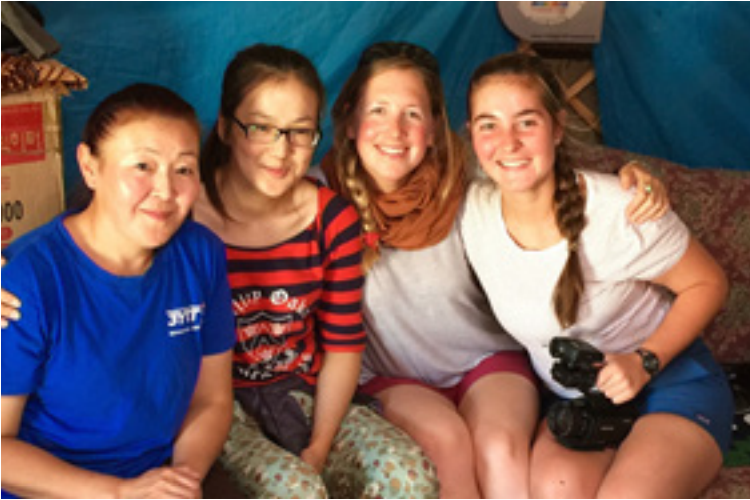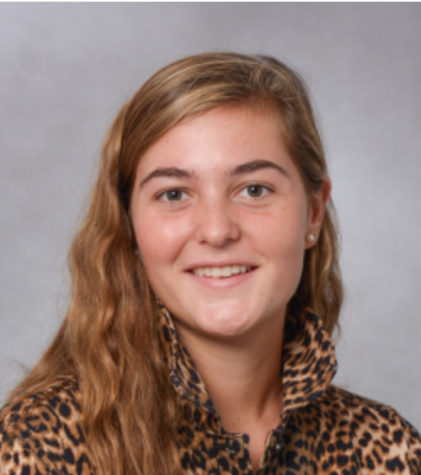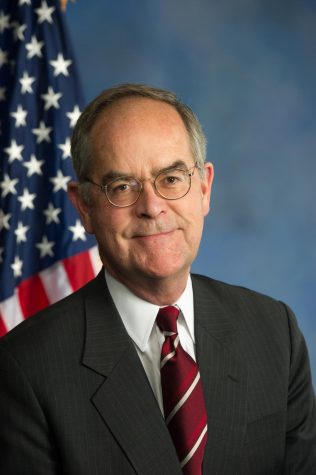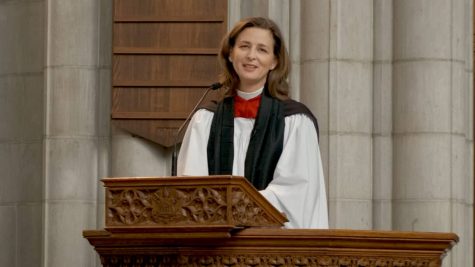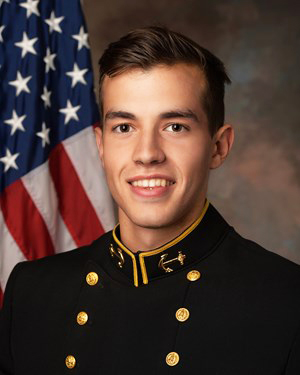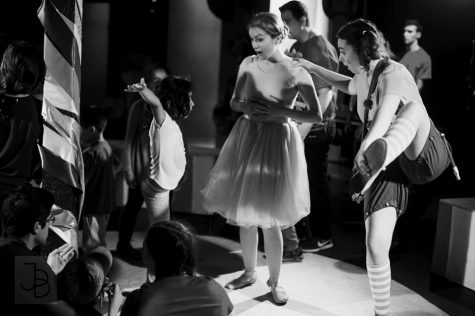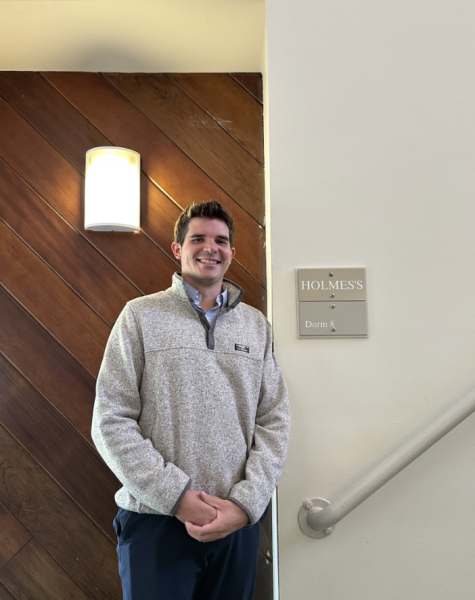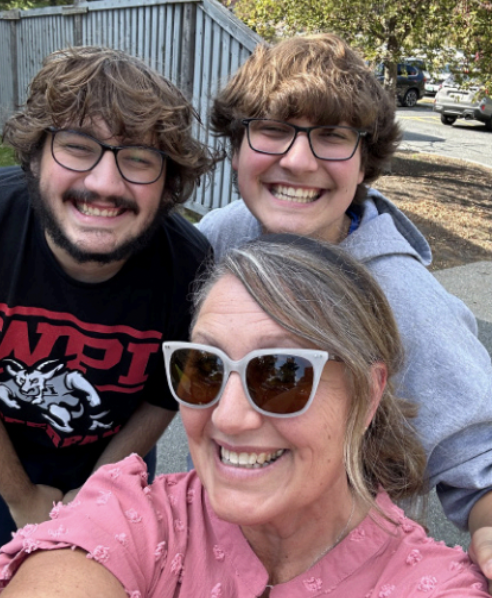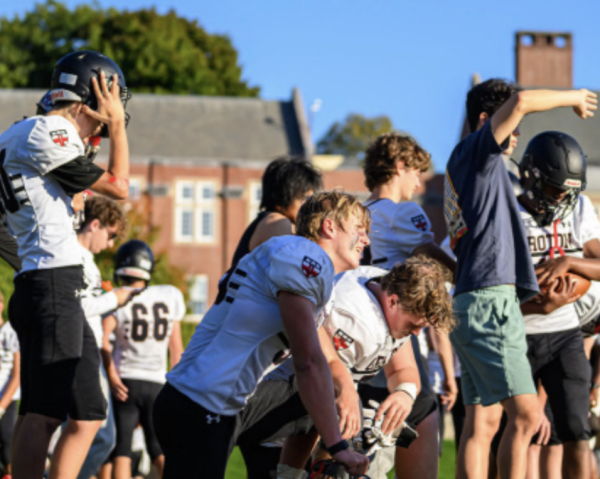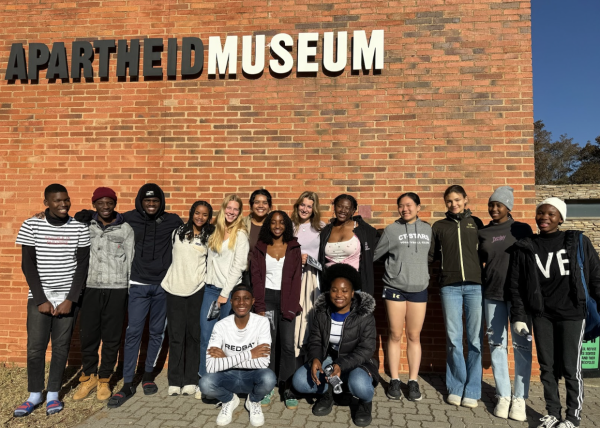Unfinished Business: Cui Servire in Mongolia
Atkinson ’16 and Thomson ’06 during an interview.
On October 11th hundreds of women and girls gathered at the United Nations in New York City to celebrate the 4th annual International Day of the Girl which was established in 2011 by the United Nations General Assembly to bring attention to gender inequality issues worldwide and advocate for the rights of girls. Each year, the “Day of the Girl” has a theme, and this year’s focus is “The Power of Adolescent Girls, Vision 2030.”
According to UN Women, there are close to 600-million girls ages ten to nineteen in the world today. They have boundless individual potential to become leaders and create positive change, but they are being held back by social, economic and political barriers like early marriage, unwanted pregnancy, lack of adequate reproductive health services, and unequal access to education.
One in every three girls— more than 200 million—is married before turning fifteen. In his remarks to this year’s Day of the Girl, UN Secretary General Ban Ki-Moon called on all of us to make good on “our promises to give girls all the opportunities they deserve as they mature to adulthood by 2030.”
Groton alumna Holly Green Gordon ’89 is one of many Groton alumni actively engaged in helping to deliver on those promises. Gordon is the Co-Founder and Executive Producer of a feature length film and global social media campaign called Girl Rising which, according to Girl Rising’s website, uses “the power of storytelling to share the simple truth that educating girls can transform societies.” Gordon is the recipient of Groton’s 2014 Cui Sevire Est Regnare Award and has tirelessly promoted Girl Rising’s message. Her team has created educational tools for girls, made strategic partnerships with private and governmental organizations working on girls’ education, and is actively advocating to provide services and programming which directly improve the lives of girls and their access to education. The mission is to change the way the world values girls.
It’s a mission that has inspired many other members of the Groton Community to also get involved. Isobel Coleman P’12 and Kim Anstatt Morton ’87 are members of Girl Rising’s advisory board. Christy Conner-Tanner ’87, Clifford Potter ’88, Heather Clay Frelinghuysen ’89, Amy Augenblick ’89, Hylton Jolliffe ’89, Jenny Quigley ’89, Diana Montgomery Edwards ’89, Kate Collier ’90, and Kate Milliken Vaughey ’90 all served as screening captains for the film. Amy Cunningham Atkinson ’79 (my Mom) was the film’s producer in Afghanistan.
Cullen Coleman ’12 worked as an intern and also wrote an early article on the project for the Groton Quarterly. Fulbright Scholar, Augusta Xenia Thomson, ’06 was the project’s director of private screenings and she is now launching her own production company, Storyweaver Films, and making her own documentary, “Learning from Llagva,” about how technology is impacting the lives of women and girls in Mongolia.
The ripple effect has even gotten me involved. This past summer, with an opportunity made possible by a grant from Groton’s JE Lawrence ’27 Global Issues Scholars Fund, I traveled to Mongolia to work as an intern for Thomson on her film and research project.
We spent almost a month in both Ulaanbaatar and the remote Altai mountains in the northwest of the country, trekking, camping and interviewing nomadic women and girls, with the help of Mongolian translator and journalist, Gundegma Altankhuyag, about how access to cell phones, computers and the internet, is changing their circumstances and altering how they think about themselves and their futures.
In early August, we interviewed the family of a fourteen-year-old Mongolian girl named Ashol Pan who is one of the few girls in the world to hunt with eagles, an art that has been practiced by nomadic Kazakh men in Mongolia’s Altai for centuries. Ghengis Khan supposedly had thousands of male eagle hunters in his personal guard, but women have traditionally been excluded from the centuries-old custom.
A few years ago, Israeli photographer Asher Svidensky photographed Ashol Pan on the top of a mountain with a gigantic bald eagle about to take flight perched on her arm. That empowering and beautiful image was shared around the world via the internet and the BBC is now making a documentary about Pan. Pan’s mother told us her daughter wants to be a doctor. It will be fascinating to see how Pan’s newfound celebrity will affect her dreams and what opportunities will follow.
Presidential candidate, and former Secretary of State, Hilary Clinton has said that equality for women and girls “remains the great unfinished business of the 21st Century” (a comment she made she made to a standing ovation at the 2014, International Day of the Girl).
The lives of girls are changing for the better, and opportunities are being opened up and redefined in ways that were unimaginable even just a decade ago.
The possibilities are limitless. We just need to get down to business.


